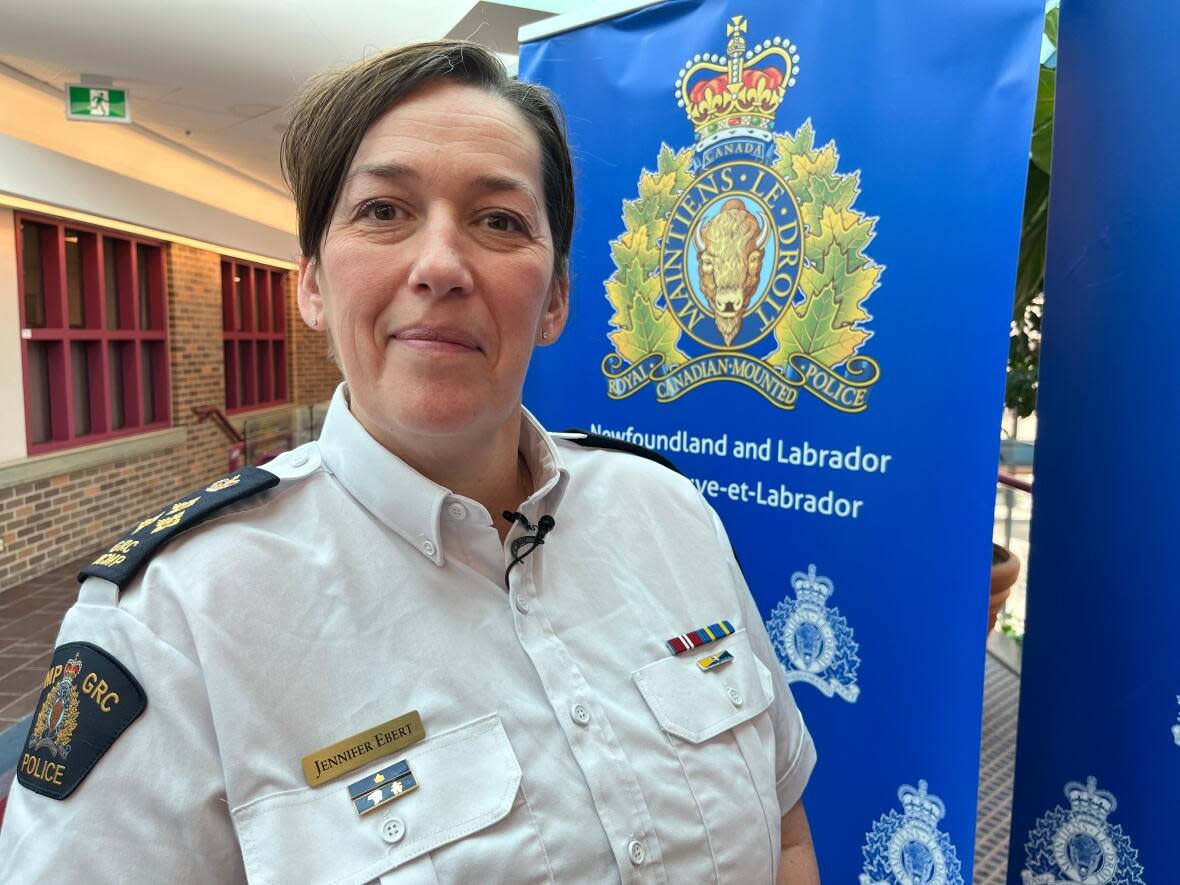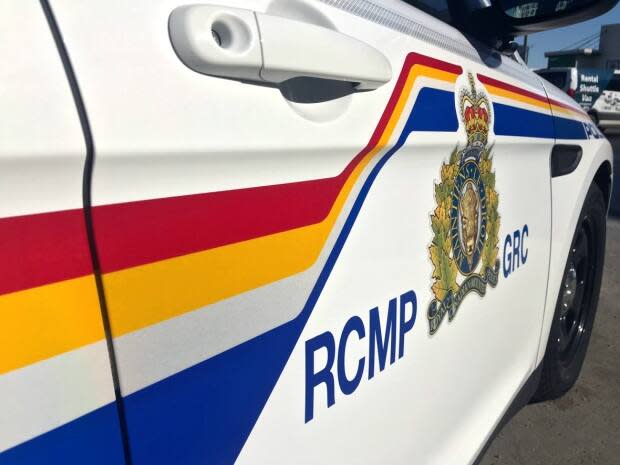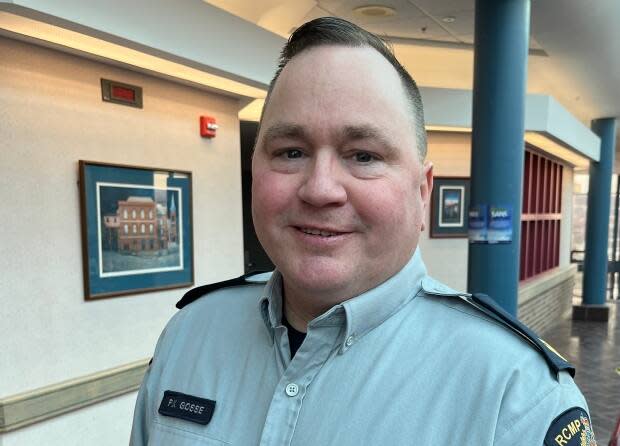Short-staffed Mounties relax posting rule in effort to bolster N.L. ranks

In a bid to bolster its ranks, the RCMP is trying to entice more recruits from Newfoundland and Labrador by increasing the likelihood they will be posted back to their home province after training.
"We can't commit to it. We can't guarantee it. But if somebody's from here and they want to come back here, they can ask for it to be considered to be brought here," said Assistant Commissioner Jennifer Ebert, the province's top Mountie.
Typically, graduates from the RCMP training depot — anywhere from 800 to 1,000 cadets annually — complete their six months of training and wait for their marching orders to wherever in Canada they are needed.
But the RCMP is struggling to fill 30 vacant positions in Newfoundland and Labrador, so it's introduced a list of measures to entice new recruits, and attract experienced officers from other police services in the country.
One of those measures is giving new officers more say in where they work. One of the outcomes of the pandemic is that more people are choosing to stay closer to home, and the RCMP hope to capitalize on that trend.
"We do have a number of vacancies and until we get those filled, those are things that we can consider," said Ebert. She explained that new officers are allocated across the country to ensure the 20,000-strong national police force can uphold public safety, but if all the officers assigned to Canada's most easterly province have roots in Newfoundland and Labrador, "then so be it."
RCMP not immune to broader labour shortage
Like many workplaces, the RCMP has a labour shortage. The COVID-19 pandemic has severely interrupted recruiting and training programs. The stress and strain of the job is also thinning the ranks and making potential recruits think twice about a career in law enforcement.

The result? An eight per cent vacancy rate among the RCMP in Newfoundland and Labrador, which is higher than the national benchmark of under six per cent. The vacancy rate does not include officers who are not available for front-line duty because of illness or other types of leave.
It's forced RCMP leaders to get creative to ensure sufficient staffing of roughly 470 officers across its 42 detachments, and a coverage area that includes 80 per cent of the province's land mass and 60 per cent of the population.
"It is probably the No. 1 discussion point that we have about recruiting and staffing and what we're doing to increase the recruiting," said Ebert.
For the first time in a few years, the unit has a dedicated recruiting officer: 23-year veteran Cpl. Peter Gosse, who said he's "getting a lot of interest right now."
Policing with the RCMP is unique in that it often requires officers to relocate multiple times during their careers. Officers are also exposed to traumatic events much more often than the average citizen, said Hue Martin of the National Police Federation, the union that represents RCMP officers.
"If you're going to take on a career as a police officer, you know that there's a huge responsibility that comes with that and I think it might be scaring some people away," said Martin, who is based in Yarmouth, N.S.
But he said it's also a very rewarding career highlighted by engaging with the community an officer polices, and scenarios in which their mission to protect and serve can help citizens through difficult situations.
"Those are the moments we all focus on as police officers and what keeps us going," said Martin, adding that the modern RCMP is also heavily fixated on the health and welfare of members.
"The last thing we want is for our members to be responding to dangerous situations where the public is being threatened and our members are responding with inadequate resources," he said.

The federation is also planning to request more money from the provincial government to hire more officers in the province. Nationally, said Martin, the ratio of police officers to population is 183 per 100,000. In Newfoundland and Labrador, he added, the ratio is lower, at 169 officers, the third-lowest in the country.
"We want to get that number up."
The provincial government spends more than $90 million annually to fund the RCMP in Newfoundland and Labrador, boosted by a $17-million increase in the 2022 budget.
Justice Minister John Hogan was not available for an interview, but a statement from his department said, "The province continually reviews budgeting and expenditures as they relate to policing. We meet regularly with the RCMP to discuss service delivery and expenditures."
Meanwhile, the RCMP is changing as it modernizes and becomes more inclusive. You can now see officers wearing beards and sporting tattoos, and male and female officers with long hair can wear ponytails.
It's part of an effort by the force to become more flexible and welcoming, and Gosse hopes it will help with his job as a recruiter.
"If you're looking for excitement and adventure, we're hiring and we have a job for you and we have a uniform that fits you," he said.

 Yahoo Movies
Yahoo Movies 
